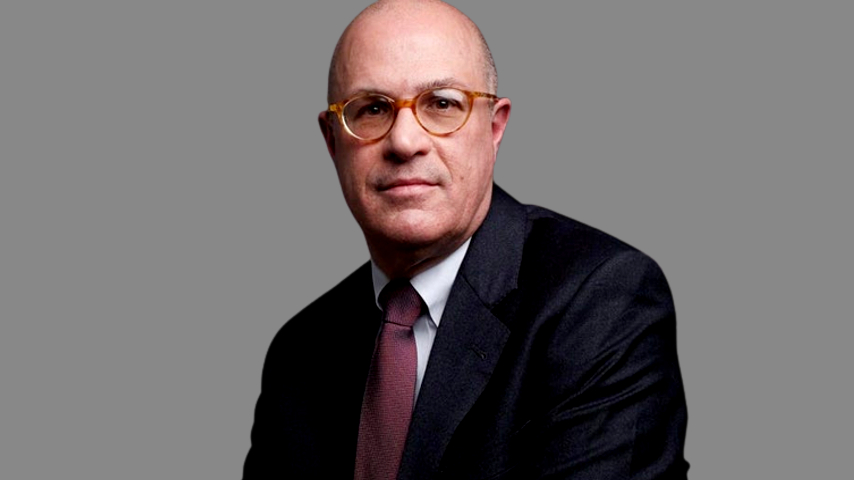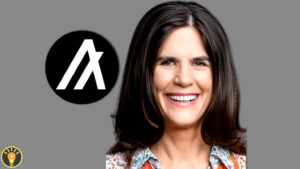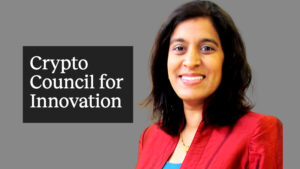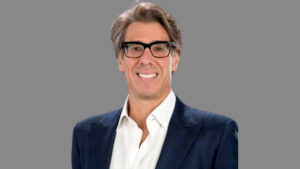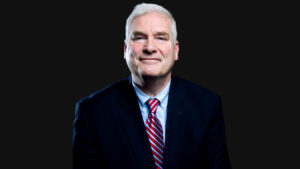In my third interview with Chris Giancarlo, Former CFTC Chairman, Author, and member of the Digital Dollar project, we discuss the latest updates around the US Digital Dollar CBDC, Fed’s move towards the Digital Dollar, suggestion for Technical Sandbox with Ripple, EMTECH, DigitalAsset and others, Tornado Cash situation, SEC, CFTC, and crypto regulations.
Transcript
Welcome back to the “Thinking Crypto” podcast, your home for cryptocurrency news and interviews. With me today is Chris Giancarlo, who is the former CFTC chairman and author of the book, “CryptoDad, the Fight for the Future of Money”. Chris, great to have you back on.
- Tony, it’s good to be with you. Thank you for this opportunity to catch up.
- Absolutely. There was some recent news around a Digital Dollar Project with, I believe the folks on your end advocating for the digital dollar and for the Fed to work with different companies. Can you take us into the details around that?
- Yeah, so just really right off the bat, before we get into the details, so that we’re clear, the Digital Dollar Project actually doesn’t advocate the US to deploy a central bank digital currency. We’re not at that stage. What we do advocate is for the United States not to play second fiddle to our economic adversaries like China and our economic competitors like Europe in design, development, experimentation with Central Bank Digital Currency. We wanna make sure that the values of a democratic society are in the digital money of the future. Whether the US deploys it or not remains to be seen. The use cases need to be established, but you know, our core foundational belief is money is as much a social construct as it is a government construct.
- Right.
- And free people and free society shouldn’t leave the design of money just to the government. We, we have a role to play. We have something to say. We, the, the, the citizens of a free society have something to say about what values should be encoded in that money. We know China’s digital yuan, as sophisticated as it is, and it is sophisticated will be a surveillance tool, will be a censorship tool. We need to make sure that if the United States deploys a digital dollar, it is not, it is, is a tool of a free of a, of a free people. And it reflects values of freedom of speech, first amendment and freedom of privacy in the fourth amendment. And so the Digital Dollar Project is a free, is a free society is, is a, is a, is a, a private sector initiative to do some early exploration of Central Bank Digital Currency. So when, and if, and my own personal belief, it’s a more of a question of when than if the United States adopts a digital currency, the groundwork has been laid through a lot of free market, private sector experimentation. And so that’s a preference to, to updating you on the work of the Digital Dollar Project. It’s, it’s a joint venture between the Digital Dollar Foundation, which is a 501 3, a, a charitable organization that I established and Accenture, the global consent consulting firm. The Digital Dollar Project now has a full-time staff led by gen Jennifer Lassiter who’s out of CFPB and, and the FDIC, and she’s a terrific executive, really giving a lot of energy and drive to the, to the initiative. Last year, we announced a series of nine pilot projects, and you can read about these at digitaldollarproject.org that we wanted to experiment with. Everything from retail use cases, use by underserved communities, use of digital currency in global transactions, global remittances, use by small businesses, but all the way over to the wholesale side, use in large transactions and putting our action where our mouth is. In April this year, we, we announced the first of those experiments. And this one was a joint venture called “Project Lithium” with the Depository Trust Clearing Corporation. And as you our listeners certainly know, the DTCC basically operates the plumbing of Wall Street.
- Right.
- The securities are traded, whether they be debt or equity, are all settled and cleared through systems operated by the DTCC. And so we at the Digital Dollar Project partnered with them to examine whether a Central Bank Digital Currency could lead to certain efficiencies in the settlement of clearing and securities. You know, securities today are settled basically once, you know, the day is over and all the buying and selling at the end of the day, people in the back office go back and figure out, okay, who’s up, who’s down. How, who who’s, who’s bought more, who’s sold more. And that is end of day or someday two day or three day settlement, depending on the marketplace. The holy grail in security settlement is to go to what’s called atomic settlement. That is not at the end of the day, but transaction by transaction. If we could get there, that will improve lower costs, it’ll improve efficiency. It will save on collateral. It’s a huge advantage that as we go into a digital world that many people have thought about. Well, we’ve experimented. Project Lithium is how having a digital currency could actually further that opportunity to get to atomic settlement. And later this month, actually early in October, the, the Digital Dollar Project will be releasing its report alongside the DTCC on the results of Project Lithium. And I think your audience will find that very interesting reading and we’ll certainly let you know when that paper has been delivered, get a copy on your website.
- Yeah, I was actually gonna ask you about that, if there were any results, but sounds like we gotta wait just a few, few more weeks or so.
- Yeah, the results are pretty, really quite interesting. So just wait a few more weeks and we’ll have a lot to say on that. And maybe we’ll come back on your show and talk about it and answer some, some of your listener questions.
- Absolutely.
- The second thing we did was in June, we announced something called the FinTech Open Source Experiment with the FinTech Open Source Foundation, Hyperledger and the Digital Dollar Project to look at at how can we develop a community dedicated to experimentation, information sharing and discussions around CBDC. The real opportunity there is to bring more people into this debate on that basic premise that I began with, money is as much a social construct as is a government one. The time is now for the private sector to engage with what a CBDC might look like. And that brings us to the last opportunity we announced just last week. It’s our, it’s our technology sandbox, where we’d invited technology vendors that believe their technology may have a role to play in developing a Central Bank Digital Currency to actually experiment with it. And so we’re working with a number of firms that have some technology offerings, including the digital assets and, and Ripple on using the technology to see whether some of those would support central bank. As you know, there’s many central bank digital currency experiments going on around the world. The Atlantic Council counts over 100 of them, including 20 of the, 19 of the G20 economies. And they’re using many different technologies to experiment with the digital pound, a digital Euro. And we wanna make sure that same experimentation is taking place here in the United States. So long answer Tony, to your question about what the Digital Dollar Project is up to, but for your listeners, what we’re doing is trying to get in a sense, out and ahead of government, Central Bank, all of whom have important roles to play, but we want to make sure that the private sector has a place to go where they can begin this experiments. And maybe the US never deploys Central Bank Digital Currency is, you know, China’s digital currency is already in the hands of 350 million Chinese. Europe has said they will have a digital Euro by 2025. So, you know, is it, is it foreseeable that the dollar remains an analog instrument in a digital future? I don’t know. And, and should we be fearful of Central Bank Digital Currency? Not necessarily. Yes, China’s digital yuan is a surveillance tool. That would be a terrible model to adopt here in, in a free society. And that’s why we all in the private sector need to come together and say yes to innovation, but no to surveillance and censorship. And that’s a balance we can get right. Those are only, those are only coding issues. Those are design features, right? If we design it right, it could be a tremendously empowering instrument. If we get privacy right in a digital dollar, we could make the digital dollar the aspirational currency for generations to come around the world. We could set the dollar up for global leadership for more generations to come. So for me, it’s not a question so much of, of, of do we do it or don’t we do it. It’s a question of how do we do it. Let’s do it right. Let’s all come together now and get it right as opposed to sit back and say, oh, you know, no way, we don’t want that. And then it happens anyway, and we’ve lost our opportunity to actually influence what it looks like.
- Yeah. Yeah. I mean, that’s a great point. I, I think, you know, I, my first thought, when you mentioned some things about the, the digital yuan is that US dollar’s a reserve currency, but if the digital yuan is gonna be forced onto certain people in different markets, it could become that reserve currency. And we, US dollar could lose that, lose that status. On the flip side of the coin, to your point of privacy. I think people are concerned because they see China’s model and they’re like, whoa, I don’t want that. And I’m glad that you guys are, you know, taking the leadership and the steps to help influence the government to do it right, if I got that correct.
- Absolutely, and you know, we have a, a privacy subcommittee at the Digital Dollar Project of our advisory board, and they did some very good work on privacy principles for Central Bank Digital Currency, again, which your listeners can see at digitaldollarproject.org, laying out a series of principles that we think are essential in a free society for Central Bank Digital Currency. You know, if those are the kind of principles that are encoded into digital dollar, I think it’s something you’ll find people flocking to, rather than fleeing. And the flip side of that is if we don’t get privacy right, we’ll undermine the dollar and we’ll have people flock to Bitcoin and other privacy, encoded digital currency. So it’s, it’s vitally important. And I think we need to move away from the debate of whether digital money will happen or not, whether it’s sovereign or non-sovereign. The real question, and by the way, non-sovereign digital money can be just as violative of our privacy as can be sovereign in the same way that big tech is violates our privacy and senses our activities. You know, the issue is privacy, the issue is not who operates the digital money. And as a free people, we need to make it clear that whether our money is run by Facebook or whether our money is run by the government, that privacy is a feature in it.
- Yeah, absolutely. I think if they can find that balance of transactions are private, but if there is an issue, you get a warrant, kind of like what you do in the real world. And then that data can be accessed.
- Of course. And when I say privacy, I don’t need privacy for unlawful or listed transactions. I’m a former regulator. We, you know, we, we, we do need law enforcement, but you know, again, free societies have, have found that balance between privacy and law enforcement for a long time. Your house in the, you know, your house is private, but if there’s illegal activity, going on, police forces could get warrants and do that. And, and you know, those rights go back to medieval England, they’ve been fought over, they’ve been defined, you know, we can get that balance right. Our job as a free society right now is to begin that experiment as we go into a digital future to reestablish that balance in the digital means that that, that it’s in the, in the centuries to come.
- For sure. Now I wanna circle back on the, the pilots and experiments, and I know you mentioned reports coming and I, I, I know I always ask you this question, but I’m curious which blockchains, and maybe I have a clue here because you mentioned Ripple. We know they’ve been doing stuff with CBDC on the XRP ledger. I know Alvaran’s been doing their thing. Can you give us any names of any blockchains that you guys have pilot tested?
- Well, so, so, so the Digital Dollar Project is technologically neutral and, and, and fiercely so. What we are doing however, is providing the opportunity for all the different, different ledgers to show their stuff, to experiment, to, to show their stuff and see what works. They’re already doing that around the world. I mentioned there’s over a hundred different ones going on. Many of them are using the different blockchains. And so, you know, firms like R3 and others are out there talking all the time about their capabilities. We wanna provide an opportunity for them to show their capabilities when it comes to a digital dollar here in the United States. And so the Digital Dollar Project is committed to creating opportunities for the different blockchains to show what they can do. But officially we have no preference for one or the other. We, we don’t, you know, with that, those decisions will eventually come if the, if the, if the, the Fed goes down this road, and hopefully they’ll look on the body of work that we’ve created to be able to determine the different pros and cons of the different blockchains.
- So my next question was gonna be, how are you interacting with the Fed if, if at all, and, you know, are you sending them quarterly reports or is it like a yearly thing? How are you interacting with sending them?
- So, yeah, it’s a great, it’s a great relationship that Fed has been very open to our materials, to our presentations. We’ve had the opportunity to present both to the members of the Federal Reserve Board, as well as the regional Feds, as well as, as staff members that are looking at this. I’m, I’m looking forward to in October being able to give a copy of our Lithium Report directly to chairman Powell and giving him a briefing on it. So the Fed is, is increasingly focused on this, but, you know, the Fed is not the only US government, arm of the US government that is focused on Central Bank Digital Currency. As you know, President Biden’s recent executive order talked a lot about Central Bank Digital Currency in it, and declared it to be of, of great importance. Different regulatory agencies are . And law enforcement, our law enforcement agencies are very focused on this. They’re very concerned about the development of the Chinese yuan, very concerned about protecting the status of the dollar and focused on this. So there’s a, you know, when, when we at the Digital Dollar Project communicate with, with our government agencies, there are many different bodies of government that are interested in our work, that invite us in to, to present and it’s important and it’s a, it’s a good two-way dialogue. We also commented on Project Hamilton. We are very close to the folks that are involved in that project. So dialogue is, is, you know, core to our mission, our as, as a 501 3, which is a US tax exempt charitable entity. Our mission is education. We do a lot of time, we spend a lot of time communicating and everything we do at the Digital Dollar Project we post on our website, we make publicly available. Our job is to provide environments for experimentation, debate, dialogue. We publish white papers and make that all available to the public. And we’re trying to raise awareness amongst the public that the time is now, as I said earlier, for the private sector and engage on this. Even if you don’t want a digital dollar to ever happen, I think you’ve got an, you’ve got responsibility to weigh in on this development, because it is gonna happen globally. Whether the US deploys it or not remains to be seen. My own view is it will happen, but it is gonna happen globally. There’s no question about that. The real question is what are the values that will be associated with digital money of the future, whether it’s done by the private sector, a non-sovereign provider or multiple non-sovereign providers or sovereign providers.
- Yeah, absolutely. And my next question, it’s, it’s funny, a good segue, because I was gonna ask how, how are will the ecosystem of stable coins and CBDCs work together? Let’s say to your point, if it’s launched, because you have private stable coins, kind of like JPM coin, while you have USDC, which is open on the market on multiple blockchains, and then let’s say the US government introduces CBDCs, how will all that function?
- So let’s look. Before we talk about the US, let’s look around the world where other central banks are answering that question. Well, we know that China since launching their digital yuan, is seeking to ban Bitcoin, stablecoins and other uses. Now some of that may be ’cause they don’t want their citizens to have dollar exposure, but another reason is simply they don’t want competition for their digital yuan. If you look at pronouncements out of Europe, those voices in Europe that are more supportive of a digital Euro are very negative on alternatives to a digital Euro, other cryptos and stablecoins. And so there’s talk about banning them. The question is, what do we do in the United States? My own personal view, and I’m not speaking on behalf of the Digital Dollar Project or its members, but my own personal view is there’s so much that Central Bank Digital Currency and the Fed can learn from experiments with stablecoins. The, the, the best environment is a multiplicitous environment where you have different offerings existing side by side, performing different functions. And I hope that as we go forward in this, that that’s a view that prevails. And I think that would be a uniquely American view or not, maybe a uniquely free society view. I think the, the approach should be, let’s, if we’re going to deploy a digital dollar, let’s make it as good as possible. Let’s encode the right values in it and it will attract the patronage that it will attract. And we’ll let other things develop in their own way with their own value proposition as they should. I don’t think we should be in the business of banning alternatives. I think we should be in the business of making sure we’re doing the right experiments with Central Bank Digital Currency. And if the decision is made by this government or future government to deploy it, that decision’s based upon sound work done by the private sector, looking at every, every opportunity, every challenge, but also every benefit.
- For sure, and I believe we, I may have asked you this question, the last time we spoke, could US government adopt an existing stablecoin that’s already in the market? Certainly not Tether. I don’t think they would, but let’s say USDC, which Circle, I know they’ve been working closely with regulators and, and it’s, they, we know what’s on their books and what’s backing the, the collateral. What, what do you think about?
- Well, it’s certainly possible. It’s certainly possible. I, I, I don’t want to, you know, second guess the political process or the process, but that’s certainly possible. I think however, that the same questions are, appropriately directed at private stablecoin operators as sovereign digital currency operators. And that would be well, what are you doing about privacy? How are you protecting people’s privacy? What are you doing about censorship? We know that big tech, we know that social media platforms, censor speech. Will private operators of stablecoin censor economic activity.
- Sure.
- Will, will they, will they, you know, bow to a government that says, well, you know, we’ll authorize your stablecoin provided you don’t let people by ammunition or a right wing government saying, provided you don’t fund abortion or a left wing government saying, provided you don’t fund right to life, right. Will a stablecoin operator be a, a private stablecoin operator, be a better guarantor of our privacy and our economic liberty as a government one. The government we know is bound by the first amendment. Freedom of speech is bound by the fourth amendment, the right to privacy. Will a private stable. So these are questions again, we’ve gotta come together as a free society and work through these issues. But to my libertarian friends who say, we don’t want government in the, in the crypto business, leave it to the private sector. My answer is that, well, how’s that worked out with speech, ’cause the private sector is actually pretty happy to censor speech in a way that the government is prevented from doing because of our constitution.
- Right. We need to make sure that in an area of a future of digital money, our rights to privacy are sacrosanct, our rights to economic liberty are sacrosanct for lawful transactions. But they’re sacrosanct, whoever’s running a, a, a, a, a, a blockchain based money system, whether it’s a, a private enterprise or whether it’s the government.
- Yeah, absolutely. There’s so many questions. I feel like to your point, we need to have the dialogue. And even if you, like you said, you don’t wanna CBDC, you you’re, you have to have your input. We all need to come collectively and put our brains together on this. I wanna touch on US crypto regulations. Obviously a lot going on. We had the Biden executive order. I was pleasantly surprised by the bipartisan support we’re seeing. Senator Lummis, Senator Gillibrand putting out a bill, but yet we still kind of have the SEC. And a lot of people are frustrated with the SEC exchanges, coin projects, even that in just normal investors. I wanna get your take on what’s happening overall.
- Well, there’s an interesting historic dimension to this Tony, that I’m not sure your listeners know about. It goes back to the 1970s. From the 1920s and 1930s on, the antecedent for the CFTC was a, a, a department at the, at the ag department. There was a division there that overseen our commodity markets. And so there CFTC hadn’t been formed yet, but there was this amazing innovation that came outta Chicago in the 1970s. Up until the 1970s and all of human history, the, the only derivatives that basically existed were, were basically futures on things that came out of the ground. Whether they were wheat or corn or gold, your derivative market was based on organic things. This innovation that happened in the 1970s was called the financial future. That where you could actually control the risk of moving exchange rates and, and moving foreign exchange rates. And the reason why it was such a block through innovation is because it coincided with the US government’s move off the gold standard and the world couldn’t go off a gold standard into a moving exchange rate standard, unless there was a way to hedge that risk and smart people in Washington and elsewhere realized that this innovation coming outta Chicago was so important. It would allow the world to go off the gold standard to a dollar standard that they realized they needed to put the regulation of this new instrument under a regulator with an, a mandate for innovation. And so they took that division outta the Department of Agriculture, renamed it the CFTC and gave it oversight of financial futures. They didn’t give the innovation to the SEC with its focus on investor protection. They gave it to an agency, the CFTC with the focus on investor protection, but also one on innovation because they needed this innovation to succeed. Well in a funny kinda way, we’re at a similar junction, the future of finance, the future of banking, the future of money itself is going to be no longer exclusively based upon bank, liabilities on bank balance sheets. It’s gonna move to an internet basis in the same way that information has moved off proprietary ownership to an internet basis. The same way that communications is on the internet, the finance and money will be on the internet. That’s a fundamental transformation in the nature of value. We call it the internet of value. And for that reason, once again, people in Washington are saying, this is so important. We need to put it under an agency with a mandate for innovation.
- Right.
- Hence the CFTC. If you look at every piece of legislation moving through Washington, virtually every piece, whether it’s the, whether it’s the Lummis-Gillibrand bill, or whether it’s the Stabenow-Bozeman bill. All of them expand the jurisdiction of the CFTC into oversight over spot markets for commodity based crypto. And I think it’s a return to what was done 40 years ago, a recognition that this, this little engine that could, the CFTC, is an agency that has an understanding of the need for, for innovation and product innovation and market innovation. And so I, I find a lot of historical precedent to what’s happening right now. I’m very optimistic that I think some combination of the, the Stabenow-Bozeman, Lummis-Gillibrand bills are gonna make it through. And I’m actually increasingly confident that you’re gonna see the jurisdiction of the CFTC expanded into crypto because it’s shown that it understands innovation. You know, it was five years ago almost that the CFTC greenlighted Bitcoin futures and that market has operated very, very well. Meanwhile, the SEC is, you know, doing what it’s doing, but the CFTC’s got five years overseeing a functioning market for crypto. That’s a lot of experience. That’s a lot of intellectual stroke that the agency’s got. And so I think it makes sense for the CFTC’s jurisdiction to expand. I think it makes sense for the CFTC to play in a leading role. Now, there is an important role for the SEC, and I’m not here to denigrate that role. When, when, when any instrument is used as a capital formation instrument, there is a role for the SEC to play, but you know, not all of crypto is about capital formation. Crypto has many, many other uses. And I think the CFTC has shown a familiarity with innovation, a comfort level with innovation. And I think that’s, that’s going, the result of that is going to be an expansion of its jurisdiction.
- And I absolutely agree with you. Certainly the SEC has a job to do. I, I’ve seen scams in the crypto . I’ve been here long enough and we will need to protect people. Absolutely. But I think folks are frustrated because there just seems to be clearance or guidance for Bitcoin and some of it Ethereum, but that’s in, up in the air. What about the hundreds of other great projects? What about Algorand? What about Cardono? What about Chainlink? What about XRP? So people are like, you know, can you show us what we need to do here? And, and there’s been reports of like the SEC’s playing shady games. Coinbase CEO, tweets out the SEC’s acting shady. I, and that’s unbelievable that a regulatory agency getting called out by the CEO of an exchange.
- Well, so I’m not going to criticize a, a, a regulator. As a former regulator, I know how those jobs are, but I’m, I won’t hesitate to praise a regulator. And I’ll give you one area to tell you how deep is the experience of the CFTC that I’ve never shared before. So I think you’ll find this interesting. In the summer of 2017, Daniel Gorfine, who is then head of lab CFTC, came into the chairman’s conference room and brought in the other four commissioners of the CFTC. And we were doing synthetic mining of Bitcoin in the summer of 2017. I don’t think there’s any other regulatory agency in the world. let alone in Washington, that even knew what Bitcoin mining was in the summer of ’17. And yet at the CFTC, five commissioners, including the chairman were in its conference room, doing mining in order to understand what it was. And that’s a level of comfort with innovation, willingness to explore, willingness to learn that you just don’t find as a commonality in other, other regulatory agencies. The CFTC truly is, there’s a reason why the CFTC is known as kind of the smart, you know, smaller, quiet agency, steady as she goes, but smart and thoughtful and innovative is a reason why 40 years the agency was created with a mandate for innovation. I think that’s the reason why the CFTC is the right regulator to go forward with this, this new internet of, of, of value that the United States needs to be a leader in. We need to not, you know, push it aside and say, no, we like the existing models that we understand. We like an analog world. We need to, you know, stop being afraid of the future and face it head on and own it and protect people at the same time. And we can do that. We can do that. We’ve just gotta have the willingness to do that.
- Yeah, absolutely. And, and, you know, something I wanna ask you about too, which recently happened with the US Treasury sanctioning tornado cash. You know, I wanna get your thoughts on that quickly, because that seems to be unprecedented sanctioning the code versus the, the bad actors.
- It is unprecedented. It is sanctioning code rather than bad actors. And I, and I, I’m hearing that there’s going to be some challenge to that coming out of the private sector. And I doesn’t surprise me because as you say, it’s unprecedented, it’s not how the sanctioning regime is, is meant to work. And I think there are a lot of thorny legal issues that need to be resolved. And so the way we resolve things in our system is, is often litigation. And so I, I’m gonna be sitting back and watching this very carefully to see how this plays out.
- For sure. Finally, here, I wanna get your thoughts on, and this is good news. The BlackRock’s entry into the market, the, the world’s largest asset manager, and seems like a big domino. And we’re just seeing really large institutions getting interested in crypto, launching funds and so forth.
- I think it’s a big move. BlackRock doesn’t do anything without careful thought analysis. They’re incredibly influential. I think that move was, was, was almost like a, a ground shaking move that perhaps people didn’t listen to as carefully as what it symbols. What it does say is there’s no turning back. The, the future of finance, the future of banking, the future of money itself is going to be blockchain based. It’s internet based, it’s tokenized. And to, you know, we, we, we have enjoyed the world’s preeminent financial system in an analog world. The question I’d ask is, do we have the courage to step up and lead it into a new digital age? If we’re, if we simply say we like it the way it is, and we’re not willing to move forward, time will pass us by. We have to own this. And that means investor protection. No question about it. That means strict enforcement. That means going after the scammers. I’m not naive. I, I ran a regulatory agency. I know with, I know how the bad actors operate and they’re, and there’s a lot of bad people out there that wanna do a lot of harm and steal a lot of money. And, you know, we need to build a regulatory system. In fact, that’s what we did at the CFTC when I was there in 2017. We didn’t shy away from Bitcoin. We said, let’s create a regulated regime so that the good folks can transact, can, can, can price Bitcoin, can, can hedge risk in Bitcoin. But at the same time, it’ll give us the insight into the markets so we can go after those bad actors. And we were no slouch when it came to enforcement. CFTC is, is second to, to no one, including the SEC in the strength of its enforcement program. And we certainly didn’t shy away, but we also created a pathway for those who wanted to operate in a safe way without regulatory risk. Here’s the pathway. The pathway’s a little steeper. In fact, we created something called heightened scrutiny for crypto. It was a slightly steeper pathway than for non-crypto products, but we put lights it and we showed you where the directions were. And so that should be the model for regulators. In other words, don’t make it impossible ’cause of confusing and aggressive behavior. Make it possible, but make it a hard climb. Make sure we weed out the good from the bad. Go after the bad actors, but let’s have a path forward. That’s the American way. We’ve, we’ve never shied away from being innovators and we need to, we need to embrace innovation now.
- Yeah, Well said. Chris, always a pleasure chatting with you. And I’m looking forward to that report in a few weeks and you know, we we’ll have to have you back on to talk about the details.
- It’ll be my pleasure. Always good to see you. Look forward to again soon.

